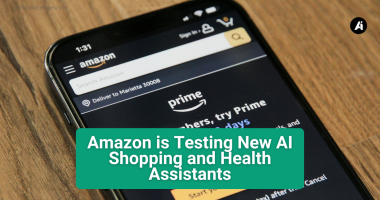Have you ever wondered what a movie would look like if it were entirely created by artificial intelligence? Well, in 2023, we got a glimpse of that future with The Frost, a fully AI-generated short film by digital production company Waymark.
This 24-minute post-apocalyptic thriller follows a group of survivors braving the icy terrain of Antarctica. But what truly sets The Frost apart is how it was made. The team at Waymark took a script written by one of their executive producers and fed it into OpenAI’s image-generation model, DALL-E 2, to produce every shot. Another AI tool was then used to animate those still images, making characters blink, speak, and move.
Is AI the New Frontier of Filmmaking?
With AI rapidly gaining traction in creative industries, filmmakers and studios are experimenting with its potential. From scriptwriting and editing to special effects and animation, AI is becoming a game-changer in Hollywood and beyond. Events like the AI Film Festival (AIFF) even celebrate how creators are pushing the boundaries of AI-generated content.
But here’s the big question: Can AI truly coexist with traditional filmmaking, where human skill and artistic vision are paramount?
The Industry Weighs In
Elizabeth Strickler, director of media entrepreneurship and innovation at Georgia State’s Creative Media Industries Institute (CMII), sees AI as a powerful tool—not a replacement for human creativity.
“AI can enhance storytelling by personalizing content, reaching broader audiences, creating evergreen content, and inventing new art forms,” Strickler explains.
However, she warns that AI should be used with clear intent. Take Coca-Cola’s AI-generated holiday commercial in 2024—it was widely criticized for lacking the warmth and authenticity that make holiday ads memorable.
“It seems like they might not have fully considered why they chose AI or its implications, possibly rushing the process,” Strickler says. “Like all art, using AI effectively requires intention, authenticity, and alignment with the essence of the work.”
The Big Debate: Will AI Replace Human Creativity?
While AI’s potential is undeniable, it also raises serious concerns. The 2023 Hollywood actors’ and writers’ strikes highlighted fears that AI could replace human jobs in the industry. If AI can write scripts, generate visuals, and even create digital actors, where does that leave screenwriters, actors, and film crews?
Strickler believes the industry will find a balance—eventually. “It might take time because things are evolving rapidly and causing confusion,” she says. “But collaboration is key.”
She outlines three key principles for ethical AI in filmmaking:
- Keep storytelling human-centered – AI should enhance stories, not strip them of emotion and depth.
- Use AI to amplify creativity, not replace it – AI can streamline production, but the creative vision should always come from humans.
- Stay in control – AI should be a tool in the hands of filmmakers, not an unchecked force shaping content.
What’s Next? The Future of AI-Driven Films
To explore these ideas further, Strickler will lead a summer class on creating a fully AI-generated film. The goal? To experiment with AI’s potential while keeping creativity at the forefront.
“People can create impactful, impressive work with just a computer at home,” she says. “But in the end, what truly matters is the final product and audience experience. Like all art, it comes back to authentic expression and the willingness to innovate.”
So, will AI revolutionize filmmaking or disrupt it? The answer might not be black and white, but one thing is clear: AI is here to stay, and it’s up to filmmakers to decide how to use it wisely.





